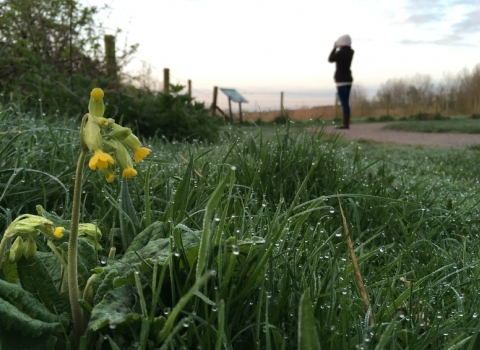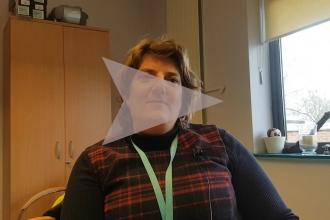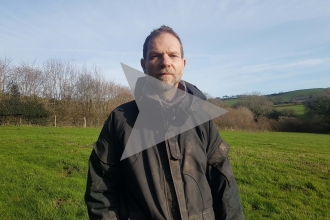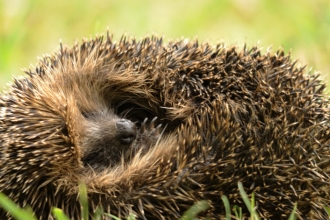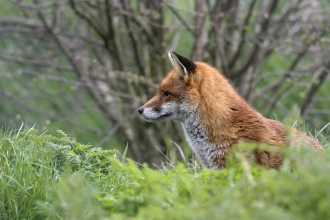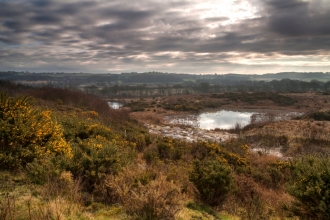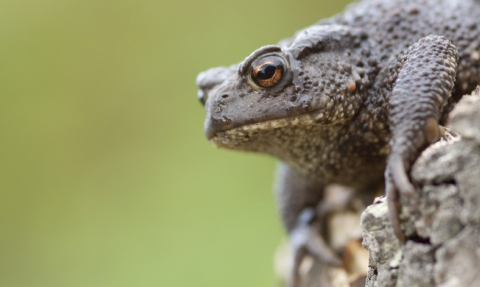
Photo, Tom Marshall
Will you speak up for me?
I need your help
My home is under threat and there are fewer places to find food every day. And I’m not alone: thousands of birds, insects and other animals across England are finding it harder and harder to survive. Plants and trees are under pressure too.
The Wildlife Trusts and friends have convinced the government of the need for a new law – an Environment Act - to improve protection for our country’s wildlife. But not all politicians are convinced and to make sure the law not only protects wildlife like me but helps us to recover, we need everyone on board.
MPs will be voting on this soon, so we need them to support a strong Environment Act, because a country with more wildlife is better for me – and better for you too!
I can’t talk to my MP - but you can.
Please contact your MP to arrange a meeting and help us talk to every elected politician. To make it easy for you we have a draft letter that you can use here. If you are not able to meet with your MP, then please amend the letter and let your MP know that you want the government to support a stronger, better Environment Act to put wildlife back into recovery. Thank you!
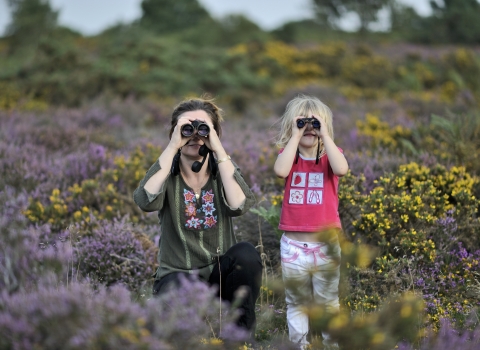
Photo, David Tipling/2020VISION
The campaign for a wilder future starts here!
Critically, we need the Environment Act to give us:
Nature Targets
Legal targets for nature's recovery that politicians must ultimately achieve and regularly report on progress towards e.g. safer air to breathe in our cities
A Nature Recovery Network
A joined-up network of habitats that provide enough space for wildlife to recover and for people to thrive.
Nature Watchdog
An independent body to help people challenge bad decisions made by Government and councils, which have a negative impact on wildlife and our natural environment.
How would an Environment Act help?
-
Improve people’s access to nature, especially in towns and cities
-
Create new wild areas and wildlife corridors across the county
-
Keep Devon’s existing wildlife sites safe from harm
-
Protect Devon’s best wildlife habitats under the sea
-
Stop Devon’s soils washing away into rivers and the sea
-
Improve air quality, especially in Exeter and Plymouth
- Stop poisoning Devon’s rivers and streams with chemicals
- Reduce emissions that are contributing to climate change
- Protect people’s rights to a healthy natural environment
- Avoid the loss of environmental protection laws after Brexit.
Find out more
Why is an Environment Act needed in Devon?
We need wildlife
Our natural world is valuable in its own right and is the foundation of our wellbeing - we depend on it and it depends on us. Without a healthy natural world the survival of humanity is at stake. By creating more space for nature, we can create a better world for people and wildlife.
Wildlife is in trouble
From rivers and woodlands, to birds and flowers, our natural world is struggling. Over half the species assessed in the State of Nature report have suffered since the 1970s, with many of our much-loved animals struggling. Just some of the declines we have seen in recent years include:
- 66% decline in the number of barn owls since the 1930s
- 95% decline in the number of basking shark in UK waters since 1950s
- 40% decline in the number of Atlantic salmon since the 1970s
- 90% decline in the number of common frogs since the 1980s
- 90% decline in the number of water voles since the 1990s.
Wildlife needs us
We can make a difference. A new and ambitious Environment Act can help reverse the trend of missing wildlife, setting out a plan for nature's recovery and creating a healthier natural world for us all.
What is a Nature Recovery Network?
A Nature Recovery Network is a joined-up network of existing and new habitats that allow wildlife and people to thrive in housing estates, on farms, in nature reserves, along road verges and riverbanks, in parks and gardens, on office roofs and in the hills.
A healthy natural environment is valuable in its own right and is the foundation of our wellbeing and prosperity. Yet, nature is in decline: many species are in freefall; wildlife habitats are becoming fewer, smaller and further apart - and many are damaged by poor management or insensitive development. We need this to change and to secure a shared vision across sectors, industries and communities that will put wildlife back into recovery.
The Wildlife Trusts are calling on Government to deliver this shared vision through a Nature Recovery Network.
A Nature Recovery Network would map and join-up important places for wildlife that are currently isolated, allow us to identify areas where wildlife is abundant or scarce, and crucially where nature needs to be put back. This will mean we can pro-actively plan and deliver nature's recovery, and ensure ambitious environmental targets are effectively delivered on the ground.
We believe that a Nature Recovery Network must be included in new environmental laws to better protect existing wildlife sites on land and at sea, create more space for wildlife and link wildlife habitats. This would commit relevant authorities to create and maintain local maps and motivate action for nature's recovery, informing decisions on housing and development, allow public and private investment to be well-spent and provide more equal access to nature for everyone.
How does this fit in with what other charities and individuals are doing?
You may have noticed that there are a few voices speaking up for wildlife at the moment. The Wildlife Trusts are part of a coalition called the Greener UK with 12 other environmental charities campaigning for nature's recovery at what we see as a crucial point for its survival. Each of these charities has agreed to the same set of messages in calling for new laws to help restore our wildlife, but are running their own campaigns alongside ours, so that collectively we can reach as many people as possible, each playing to our own strengths e.g. WWF-UK's #FightforyourWorld.
Concerned about the threat to our wildlife, a few independent people are also acting for nature's recovery. For example, Chris Packham recently launched 'A People's Manifesto for Wildlife', suggesting a range of policies. A copy of this independent document has been sent to every MP.
When talking to your MP, it is worth bearing in mind some of these campaigns, as they may have received letters or been asked to do things in relation to them - so it might crop up in conversation!
Update from Harry Barton, CEO Devon Wildlife Trust
Why do we need an Environment Watchdog?
What is the best thing about Devon? For one of the most beautiful counties in England, that’s a pretty hard question to answer. Perhaps it’s our 500 mile long coast with its beaches, headlands and cliffs. Maybe Dartmoor, with its wild tors, bogs and oak forests. Or one of our nine river systems, which plunge dramatically from the remote uplands to our many stunning estuaries.
There’s no question that Devon is a special place for wildlife. But it could be a lot better. Less than a third of our best wildlife sites are in favourable condition, less than one fifth of our rivers are in a good ecological state, and farmland birds continue to be lost across the county. At sea the situation is no different. The plastic plague is now well known, but the less visible and even more insidious problems of warming, acidification and over exploitation have wreaked just as much damage. Anyone looking at this would say that we have not done a good enough job of looking after what we’ve got, let alone succeeding in improving it.
It’s time to turn things around. The good news is that we have a once in a generation opportunity to do this. Earlier this year the government published a 25 year plan for the environment. It was full of great ambition, such banning single use plastics, increasing our woodland cover to 12% and creating half a million hectares of wildlife rich space. What we didn’t know at the time is how the government planned to make all this happen.
Well, now we do. Over the summer our Prime Minister promised to create a new Environment Act. Public consultation on the first draft of this is launched today. We’re expecting another consultation on the full document in the coming spring, but this first draft focuses on the all-important questions of environmental principles and governance – how will laws apply post Brexit, and who will be responsible for making sure they are applied effectively. This may not make you leap in the air with wild excitement, but you only have to look at the state of our wildlife to see just how important it is to get these fundamentals right.
What do we want from this Bill? Simply, we want all the principles that have applied to environmental laws in recent decades – the polluter pays, the right to participation in environmental decision making and the principle of taking preventative action to avert environmental damage among them – to continue to apply. We want to see a “non-regression” principle, which means that environmental protections can’t be rolled back by future governments. And we need a robust, independent and properly funded watchdog that can hold the government to account for its actions in relation to the environment. Without this, there is no guarantee that the things we love in Devon will be safe. None of us has the luxury of flouting Health & Safety law just because it is cheap or convenient to do so. Why should the situation with our natural environment be any different?
And what powers should this new watchdog have? It needs to be able to investigate how well environmental laws are being followed. It should have the power to launch legal action against the government and even press for it to be fined if laws aren’t followed. Proceeds should go towards environmental protection. These powers should extend to statutory agencies and local authorities as well as central government. And to be truly successful, the government must recognise that it needs to accept the authority of the new watchdog, even if it doesn’t like the decisions it takes.
This may sound like common sense, but none of it is guaranteed. Powerful vested interests are doing all they can to draw the new law’s teeth and limit its scope. How convenient that would be for those wishing to avoid taking difficult decisions or who want to make a quick profit without paying heed to the consequences. But what a betrayal that would be for Devon, its natural environment that makes it such a special place, and those who care for it.
That’s why we mustn’t let that happen. We want a strong, ambitious law that puts bringing nature back at its core. Fine words aren’t good enough. Simply transposing the laws that applied when we were in the EU isn’t good enough. World leading law is the only thing that’s good enough, because without that nature will at best stay still, and more likely continue to decline.
This is a time when we all need to be standing up for our natural environment in Devon. You can help by writing to your MP and your local councillor and telling them how important you think it is to have robust new laws. And please encourage your friends to do the same. The biggest threat to wildlife is arguably the silence of those who care but don’t speak up. So let’s shout together!
Next steps
Following up with your MP is a good way to keep your meeting fresh in their mind – sending them a quick ‘thank you’ email with the photo is a nice way of doing this.
It might also help to take brief notes on what was said in the meeting so you can remind them of anything they have committed to and hold them to it!
Voices for a Wilder Devon
People from across Devon explain why a Wilder Devon is important to them and how we can work together to achieve it.

